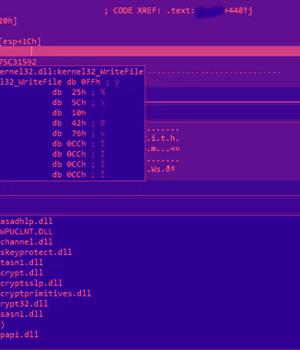Security News > 2023 > January > Hackers Using Stolen Bank Information to Trick Victims into Downloading BitRAT Malware

A new malware campaign has been observed using sensitive information stolen from a bank as a lure in phishing emails to drop a remote access trojan called BitRAT. The unknown adversary is believed to have hijacked the IT infrastructure of a Colombian cooperative bank, using the information to craft convincing decoy messages to lure victims into opening suspicious Excel attachments.
The leaked details include Cédula numbers, email addresses, phone numbers, customer names, payment records, salary details, and addresses, among others.
The Excel file, which contains the exfiltrated bank data, also embeds within it a macro that's used to download a second-stage DLL payload, which is configured to retrieve and execute BitRAT on the compromised host.
"It uses the WinHTTP library to download BitRAT embedded payloads from GitHub to the %temp% directory," Qualys researcher Akshat Pradhan said.
Created in mid-November 2022, the GitHub repository is used to host obfuscated BitRAT loader samples that are ultimately decoded and launched to complete the infection chains.
BitRAT, an off-the-shelf malware available on sale on underground forums for a mere $20, comes with a wide range of functionalities to steal data, harvest credentials, mine cryptocurrency, and download additional binaries.
News URL
https://thehackernews.com/2023/01/hackers-using-stolen-bank-information.html
Related news
- North Korean Hackers Target Freelance Developers in Job Scam to Deploy Malware (source)
- Chinese hackers use custom malware to spy on US telecom networks (source)
- New Linux Malware ‘Auto-Color’ Grants Hackers Full Remote Access to Compromised Systems (source)
- Chinese FamousSparrow hackers deploy upgraded malware in attacks (source)
- North Korean Hackers Deploy BeaverTail Malware via 11 Malicious npm Packages (source)